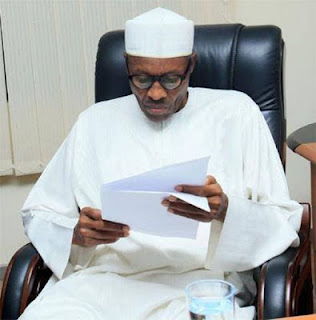Written by the Editorial Board of The Guardian Newspaper
It was a good development that the Federal Government’s inability to pay salaries and allowances of former presidents in the last 10 months was not ignored by the news media.
The Secretary to the Government of the Federation (SGF), Babachir Lawal, who disclosed the development recently to members of the Senate Committee on Federal Character and Inter-Governmental Affairs in Abuja, said President Muhammadu Buhari could not approve the payments to the former leaders because of lack of funds. Those affected include Shehu Shagari, Olusegun Obasanjo, Goodluck Jonathan, Ibrahim Babangida, Ernest Shonekan, Abdusalami Abubakar, Yakubu Gowon. They have been owed for 10 months.
The revelation underscores the fact that leaders at all times should continue to pay attention to health of the economy while in office so that every citizen’s future including theirs can be guaranteed. This is one lesson African leaders most of whom like to read the biography of Singapore’s legend, Lee Kuan Yew without imbibing any lessons about nation building. The Singaporean leader, who ruled the country from June 1959 to November 1990, lifted his country from Third to First world.
The news media is awash daily with reports that the nation’s economic system has been wrecked and virtually broken down. Specifically, the country is at the moment experiencing a terrible economic recession. A system that is import-dependent is experiencing a foreign exchange crunch to the extent that citizens are finding it difficult to transact international business with a weak currency in the foreign exchange market. The economic system has been so bad that Nigerian leadership is seeking to return the country to a debilitating debt trap we painfully exited in 2006 when the Paris Club forgave us $18 billion out of the country’s $38 billion and we paid a whopping $20 billion. Nigeria is bidding to borrow about $30 billion ($29.9 billion) to stimulate development and lift the country out of the murky waters of recession. The National Assembly has asked for more details of the comprehensive foreign borrowing the President had tabled before it. If the loan request is approved, it would push Nigeria’s total external debt stock, which stood at $11.262 billion as at June this year to $41.162 billion after three years, when the borrowing plan would have been fully executed.
The former president’s salary crunch story broke at a time 33 out of 36 states were unable to pay salaries of their workers in Nigeria. There is a sense in which we can claim that most of the former leaders being owed at this time have contributed to the parlous state of the economy one way or the other when they were in office. A literature review of the Nigerian governance system has always revealed casual approach of former leaders to economic management in the country.
For their yesterday, most of the former leaders had eaten our tomorrow. In other words, it is their years of locusts that we are suffering collectively as a nation today. We sympathise with a few of them who may not have been involved in questionable acquisitions that they can rely on. In any case, their simplistic approach to governance matters has not helped matters too, in this connection.
So, today’s economic trouble is consequent upon years of unmitigated plundering, greed and avarice that permeate the polity. All of these are attributable to poor leadership that we have been experiencing since military truncated democracy in 1966. The 1963 Republican Constitution that clearly provided for federalism principle that was in place until 1966 accelerated development and competitive spirit in the four regions that were in the country then. It wasn’t for trite reasons that a foremost author and public intellectual, Professor Chinua Achebe noted in his classic, The Trouble with Nigeria published in 1983 on the eve of President Shehu Shagari’s second term opens with the following words: The trouble with Nigeria is simply and squarely a failure of leadership. There is nothing basically wrong with the Nigerian character. There is nothing wrong with Nigerian land or climate or water or air or anything else. The Nigerian problem is the unwillingness or inability of its leaders to rise to the responsibility, to the challenge of personal example, which is the hallmark of true leadership…
It is unfortunate that more than 33 years after Achebe’s lamentation about poor leadership, the trouble is still manifesting and festering quite remarkably. That is why the former leaders cannot be treated as innocent bystanders, in this regard: They contributed to the present decay. And so, without exception, everyone is bearing the brunt of misrule. Nobody should be more entitled to a better life than others. The plight of millions of teachers and workers who stay penniless for months without salaries should arouse deeper concern than that of former leaders.
Meanwhile, in the spirit of transparency that rules the day now, there should be complete disclosure of what the nation pays the few former leaders who are being owed for 10 months. It is in our character to hide salaries and emoluments of public officers. What our leaders earn is mostly shrouded in mystery. Only an embattled ‘whistle blower’ in the House of Representatives has for the first time spoken about some hidden allowances of Nigeria’s federal legislators. That has not gained traction in the public square too. There are no details about how to trail public expenditure in the country. How much we use in maintaining our leaders from local governments to the presidency is a top secret. Citizens too should take advantage of Freedom of Information Act (FOIA) to ask questions, no matter how the difficulties public officers mount on the way. We should insist on full disclosure of all financial transactions in this democracy. It is a fundamental right to know facts of governance in a democracy. It is a remarkable dividend of democracy.
(adsbygoogle = window.adsbygoogle || []).push({});


